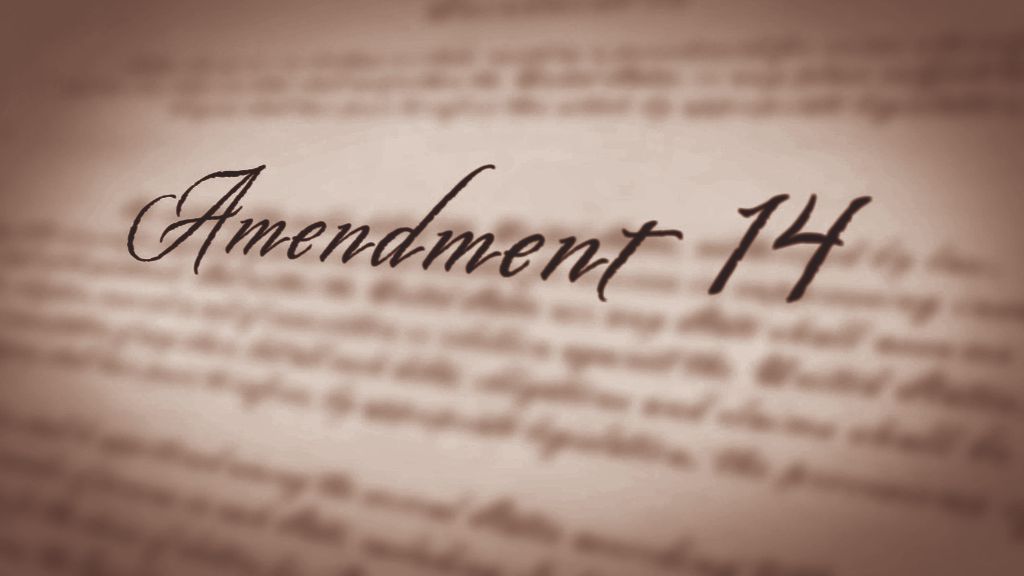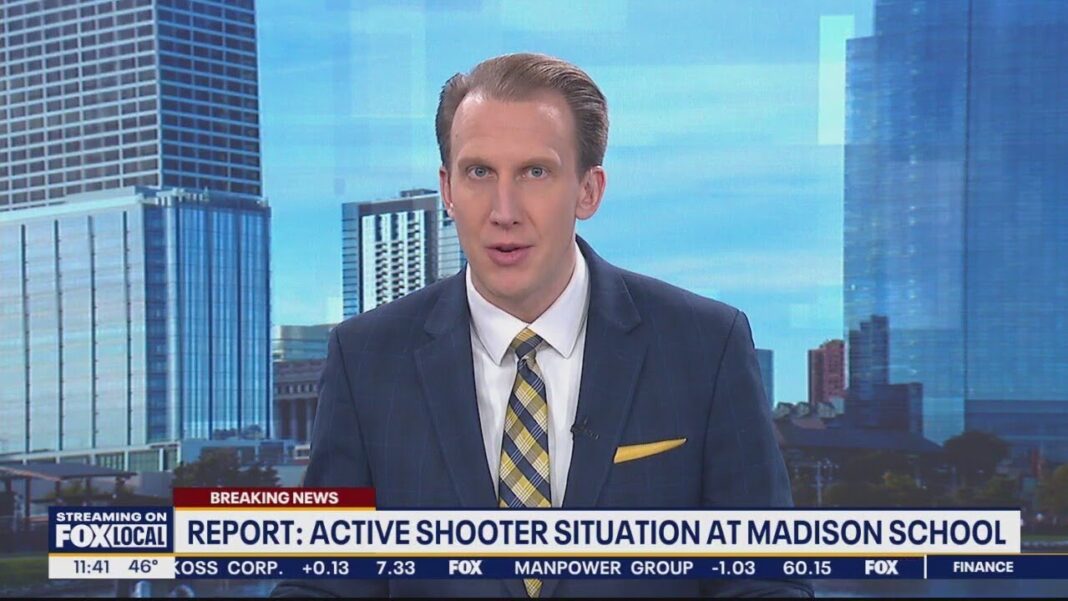Overview
Dozens of media outlets are reporting in unison that Donald Trump cannot stop the U.S. government from awarding birthright citizenship to the children of illegal immigrants. They claim this is the case because the 14th Amendment of the U.S. Constitution requires it.
In reality, the legislative history of the 14th Amendment is clear that it only grants birthright citizenship to the children of people who are legally and permanently living in the United States. This does not apply to the children of illegal immigrants, temporary residents, visitors, or tourists.
The children of such foreigners are currently granted U.S. citizenship and its benefits under a misinterpretation of the Constitution. Although such citizenship could be conferred through legislation, no such law exists.
A Supreme Court ruling in 1898 presents mixed messages about this issue, but it is factually flawed on multiple levels and could justifiably be superseded by the current Supreme Court.
The Historical Background
In 1866, shortly after the Civil War ended and slavery was abolished, a bloc of Congressmen called the “Radical Republicans” passed a civil rights law to ensure that African Americans had the “full and equal benefit of all laws and proceedings for the security of person and property, as is enjoyed by white citizens….” This law applied to former slaves but not to foreigners, and thus, it stated that:
all persons born in the United States and not subject to any foreign power, excluding Indians not taxed, are hereby declared to be citizens of the United States….
To guarantee that the Civil Rights Act of 1866 was constitutional, the Radical Republicans fought for and secured passage of the 14th Amendment to the U.S. Constitution in 1868. The amendment mimics the act and states:
All persons born or naturalized in the United States, and subject to the jurisdiction thereof, are citizens of the United States and of the State wherein they reside.
The sentence above is known as the “birthright citizenship” clause of the Constitution. Under the current prevailing interpretation of it, children born in the U.S. to illegal immigrants, temporary residents, visitors, and tourists automatically become U.S. citizens and:
- are eligible for all state and federal welfare benefits, such as food stamps, housing, home energy, childcare, and health insurance.
- can vote in U.S. elections.
- sometimes serve as shields to prevent their parents from being deported.
- can sponsor their relatives to become legal permanent residents and U.S. citizens.
In 2009, Pew Research estimated that 73% of the children of unauthorized immigrants were U.S. citizens.
The Current Debate
During a recent episode of NBC’s Meet the Press, moderator Kristen Welker asked President-elect Donald Trump if he planned to keep his promise to end birthright citizenship on his first day in office, and Trump replied, “Yeah. Absolutely.”
Welker then challenged Trump by stating, “The 14th Amendment, though, says that, quote, ‘All persons born in the United States are citizens.’ Can you get around the 14th Amendment with an executive action?”
Welker’s assertion is materially false because it omits the operative words “subject to the jurisdiction thereof” from the 14th Amendment:
All persons born or naturalized in the United States, and subject to the jurisdiction thereof, are citizens….
The debate about birthright citizenship hinges upon the words that Welker excluded, but instead of correcting her, several media outlets parroted her falsehood, like the BBC, CNN, and NBC News.
While posting a screenshot of the misleading NBC article, Hillary Clinton wrote on X, “Birthright citizenship is enshrined in the Constitution. Trump may want to read it.” Yet, neither she nor NBC quoted the Constitution.
Dozens of other media outlets reported on the exchange between Trump and Welker while mentioning the phrase “subject to the jurisdiction” but claiming that it includes illegal immigrants. This includes, for example, the New York Times, the Washington Post, USA Today, PolitiFact, and CBS News. The common thread among all of them is that they ignore the pivotal facts of the issue.
The Determinative Facts
On May 30, 1866, Republican Senator Jacob Howard of Michigan introduced the 14th Amendment in the U.S. Senate and defined the phrase “subject to the jurisdiction” by stating:
This will not, of course, include persons born in the United States who are foreigners, aliens, who belong to the families of ambassadors or foreign ministers accredited to the Government of the United States, but will include every other class of persons.
Some scholars, like Tufts University professor Daniel W. Drezner, argue that the words “foreigners,” “aliens,” “ambassadors” and “foreign ministers” are merely “synonyms to describe the same category of individuals, namely the children of foreign officials.”
Drezner’s claim is transparently false because the meanings of the words “foreigner” and “alien” include illegal immigrants, while “ambassador” and “foreign minister” do not. Moreover, the differences between the first two words and the last two are so great that a total of 198 synonyms provided by Power Thesaurus for “foreigner” and “alien” don’t include “ambassador” or “foreign minister.” The converse is also true.
Furthermore, the senators debated the meaning of the phrase “subject to the jurisdiction” after Howard introduced the amendment, and Howard further explained that:
the word “jurisdiction,” as here employed, ought to be construed as to imply a full and complete jurisdiction on the part of the United States, coextensive in all respects with the constitutional power of the United States, whether exercised by Congress, by the executive, or by the judicial department; that is to say, the same jurisdiction in extent and quality as applies to every citizen of the United States now. Certainly, gentlemen cannot contend that an Indian belonging to a tribe, although born within the limits of a State, is subject to this full and complete jurisdiction.
As ratified, the birthright citizenship clause of the 14th Amendment contains the exact words proposed by Howard. Hence, there can be little doubt that it means exactly what he said it means.
Drezner quotes other snippets from the U.S. Senate debate as if they determine the meaning of the birthright citizenship clause, but the full record of the discussion reveals that they were just a part of the typical back-and-forth that occurs in such debates. By cherry-picking quotes from this dialogue, one can make any variety of claims about what it means. In the end, the definitive authority on this issue is Jacob Howard, who proposed and clarified the words that became a part of the U.S. Constitution.
Notably, the 14th Amendment doesn’t prohibit federal legislators from granting citizenship to people not included in its birthright citizenship clause. This occurred in 1924 when Congress passed and President Calvin Coolidge signed a law that awarded U.S. citizenship to all “non-citizen Indians born within the territorial limits of the United States.” Conversely, no such legislation has been passed for the children of illegal immigrants or tourists.
Supreme Court Precedent
In 1873, a baby named Wong Kim Ark was born in the city of San Francisco to Chinese immigrants who were legally living in the U.S. and had “established and enjoyed a permanent domicile and residence therein” but were not U.S. citizens.
When Ark was about 21 years old, he took a trip to China but was denied reentry to the U.S. because laws enacted in 1882 and 1888 prohibited Chinese laborers from entering the U.S., and customs officials decided that Ark wasn’t a U.S. citizen because his parents were not.
Ark sued, and the case went to the Supreme Court, where Ark won. In a 6–2 decision issued in 1898, the majority declared that the 14th amendment grants citizenship to “all children here born of resident aliens” with limited exceptions like diplomats, occupying enemy forces, and members of Indian tribes.
Conflictingly, however, the majority also wrote that the 14th Amendment’s phrase “subject to the jurisdiction thereof” only applies to people who “are permitted by the United States to reside here.” This plainly excludes unauthorized immigrants and tourists who don’t live in the U.S.
Another flaw in the ruling is that the majority assumes the 14th Amendment “must be interpreted in the light” of “English common law” that preceded the birth of the United States. Since “English common law” linked “English nationality” to “birth within the allegiance” of “the king,” the majority claimed that the 14th Amendment “affirms the ancient and fundamental rule of citizenship by birth within the territory, in the allegiance and under the protection of the country….”
Beyond the fact that the 14th Amendment was enacted 92 years after the birth of the United States, the dissenting justices criticized the majority for imposing on the U.S. Constitution “feudal” and “regal” doctrines that the founders of the U.S. had overthrown. The notion that people are the “subjects” of a monarch, wrote the minority, “never had any basis in the United States.”
Another weakness in the majority’s ruling is their claim that the phrase “subject to the jurisdiction” means the same as “within the jurisdiction.” This is called into question by the first paragraph of the 14th Amendment, which uses those phrases for different purposes (italics added):
- “All persons born or naturalized in the United States, and subject to the jurisdiction thereof, are citizens of the United States….”
- “nor shall any State … deny to any person within its jurisdiction the equal protection of the laws.”
It’s a stretch to assume that the authors of 14th Amendment used those distinctive terms to mean the same thing, especially since one of the authors explicitly stated that the phrase “subject to the jurisdiction”:
- “will not, of course, include persons born in the United States who are foreigners, aliens, who belong to the families of ambassadors or foreign ministers….”
- doesn’t include “an Indian belonging to a tribe.”
- “ought to be construed as to imply a full and complete jurisdiction on the part of the United States, the same jurisdiction in extent and quality as applies to every citizen of the United States now.”
Given the forgoing facts, the current Supreme Court may set aside the conflicting dicta of the Court’s 1898 ruling in Wong Kim Ark, who was the child of legal immigrants—not illegal immigrants or tourists.
Summary
Based on a faulty interpretation of the 14th Amendment, the federal government is awarding citizenship to the children of nearly everyone who gives birth in the United States. As a result, the children are entitled to receive welfare, vote when they become older, and obtain other benefits of U.S. citizenship. This includes the children of illegal immigrants, temporary residents, and even foreigners who vacation in the U.S.
The legislative history of the 14th Amendment reveals that the birthright citizenship clause was enacted primarily to protect the civil rights of African Americans. Contrary to shallow claims from the media and certain scholars, it doesn’t grant citizenship to the children of anyone who is not legally and permanently living in the United States.
By James D. Agresti
James D. Agresti is the president of Just Facts, a research and educational institute dedicated to publishing facts about public policies and teaching research skills.








